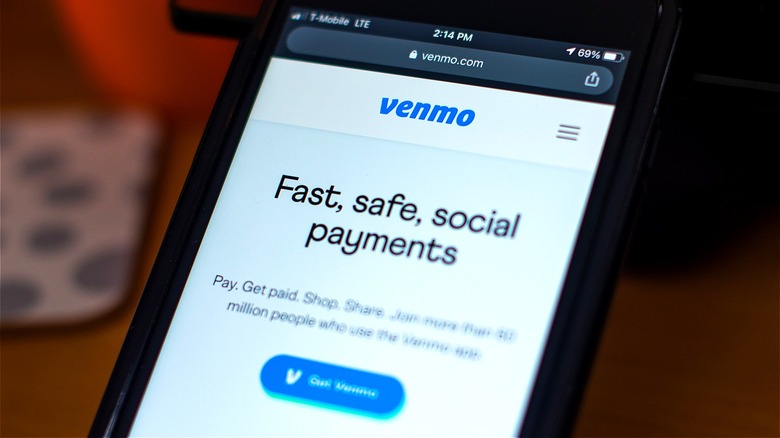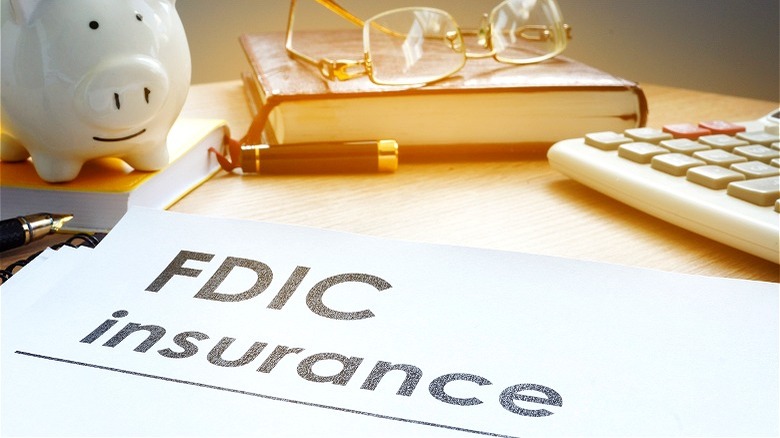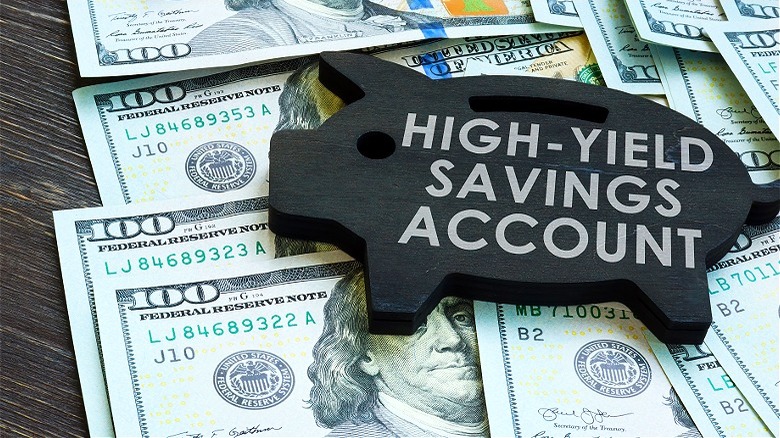You Shouldn't Leave A Large Balance In Your Venmo Account. Here's Why
There's no question payment apps like PayPal, Zelle, and Venmo are here to stay, rapidly replacing good ol' cash as consumers' preferred peer-to-peer medium. With these P2P apps, you can easily split a restaurant check, reimburse friends and family for expenses, or pay merchants. In fact, 76% of all Americans reported using at least one payment app in 2022, according to the Pew Research Center.
Logistically, once you've accumulated a sum of money in a payment app like Venmo, users have the option to leave the funds in the app or transfer them to an outside account, like a checking or savings account at a bank or credit union. If you don't immediately need the money for something else, it can be convenient to leave funds in a payment app for future use. However, what happens if a payment app company fails, or otherwise goes out on business?
Money kept in banks is typically insured by the Federal Deposit Insurance Corporation up to an amount of $250,000. Note that while banks aren't required to have FDIC insurance, most, if not all, do. Otherwise, they wouldn't be competitive in an environment where depositors expect this safety net. Credit unions, meanwhile, have the same $250,000 level of protection via the National Credit Union Administration. The same, however, generally can't be said of payment apps. Finally, consider that money stored on Venmo may be at a higher risk of being compromised by fraud and hackers.
It's not always known where app funds are parked
While it's unlikely a payment app's business will fail, it can't be completely ruled out, either. One only needs to consider the sudden failure and subsequent losses involved when Silicon Valley Bank suddenly shut down in March 2023. Following an increase in interest rates by the Federal Reserve to combat inflation, Silicon Valley Bank's investments rapidly decreased in value while at the same time, many of its depositors were withdrawing their deposits out of fear, creating a collapse.
Of course, the remaining Silicon Valley Bank depositors were covered by FDIC insurance, but that likely wouldn't be the case with payment apps. You might find yourself in a long struggle to recover lost funds, in contention with other users and creditors. Also, payment apps like Venmo make money via the fees users and merchants pay for certain types of transactions. Yet, it's often unclear if further profits aren't sought by making loans or investing disposable funds in bonds or equities. Losses in those investments could eventually lead to liquidity issues and the demise of the company.
Opening a high-yield savings account is a better option
As you might imagine, P2P payment apps like Venmo that directly access users' bank accounts are subject to high standards of security like data encryption and secure servers. Still, it's not impossible for hackers to access users' Venmo accounts to steal money and such breaches have indeed occurred. That said, many companies have experienced data breaches at one time or another as a byproduct of doing business in the internet age, so you shouldn't be too terrified.
Still, in the case of Venmo or other payment apps, it's a good idea to avoid storing large amounts of money on the app. Not only is your money likely more secure in a conventional bank or credit union, but you also have the potential to earn money via interest payments. While you might struggle to find aggressive rates locally, some online banks offer savings accounts with annual percentage yields, or APYs, of more than 5%, with no minimum balance requirement.
If you decide to transfer funds from Venmo to an outside account, like your bank, note that Venmo charges a 1.75% fee for "instant" transfers (actually up to about 30 minutes). If you don't need access to the funds right away, a better choice is the free standard transfer that takes three to five business days.


